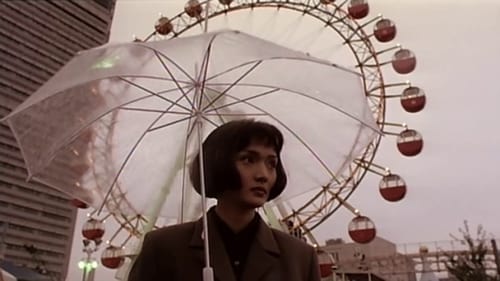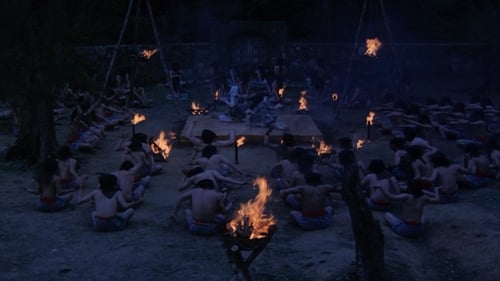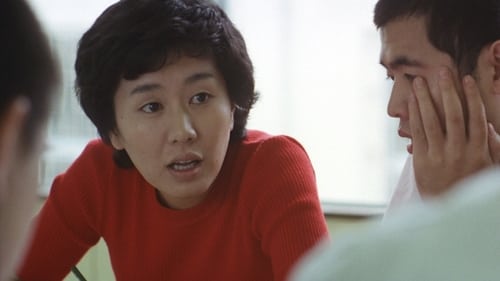
A Professional sniper, Ryo has executed so many missions with his partner, Narushima. But Ryo is caught in between a multitude of emotions, when he realizes that his newest target will be an old acquaintance of his.

Benny Watanabe
Un asesino a sueldo trata de proteger a la hija de una de sus víctimas, la cual es perseguida por agentes de la CIA.

Nagisa, a high school girl who has been given three months to live. Without telling her widowed father where she is going, she sets out from the city to the small town where she was born. She recalls her childhood memories, and her love for Satoshi begins to grow stronger. However, she is shocked to discover that Satoshi is having an affair with Eriko, a married woman.

Sugiura
Kawamoto works and lives in a dilapidated pool hall which also serves as a rehearsal space for him and his friend Chikako. They seem contented to while away their hours doing nothing much at all. Meanwhile, an old pool shark meets some people from his past that he is none too happy to see again. How will this affect their private haven?

Yûsaku Shigemori
Sadako Yamamura, una joven adolescente con un pasado tenebroso, es miembro de una compañia de teatro. Es una joven a la que nadie presta atención, y todos la ven como una chica extraña. Todo por un suceso que ocurrió en su niñez: su madre, Shizuko, ayudada por su marido, hizo creer a todos que era una especie de vidente. Durante una exposición de su poder, uno de los asistentes murió. Pero Sadako, aun niña, estaba allí, y aunque tiene olvidado parte de su pasado, recuerda, de vez en cuando esos sucesos... y los demás del pueblo lo descubrirán pronto.

Rei Aku
A police psychologist suspects her former lover of serial murders on the Tokyo subway.

Dai
Su-e (Mayumi Ogawa) y su primo Sutekichi (Tsutomu Yamazaki), quieren vivir juntos, pero su padre les prohibe tener contacto sexual. Al igual que otros lugareños, creen que si tienen hijos primos juntos, los niños sufrirán graves defectos de nacimiento. Su remedio es escapar con Su-e. Después de algún tiempo transcurrido, los dos hacen el camino de regreso a la aldea, pero para entonces Sutekichi sufrirá los efectos de sus acciones.

This is Shuji Terayama memorial performance of The Hunchback of Aomori from 1983 (featuring Akihiro Miwa). Terayama gathered dwarfs, circus freaks, itinerant magicians, acrobats and untrained youth for his burgeoning troupe, Tenjo Sajiki. The troupe's premiere offering, written and directed by Terayama, was Aomori-ken no Semushi Otoko (The Hunchback of Aomori, 1967).

This is Shuji Terayama memorial performance from 1983.

The guardian of the house
Secuela espiritual de "La historia de O". “Les Fruits de la Passion” es un melodrama erótico ambientado en el Hong Kong de los años 20. Kinski, un europeo decadente con negocios en la ciudad, envía a su mujer a un burdel para profundizar en su amor física y espiritualmente. El tema de la sumisión, del sufrimiento y la ofensa que aparecían en la cinta de 1975 son retomados aquí, en cuyo burdel de fantasía se muestran viñetas de tortura, fetichismo y perversiones diversas. “O” debe renunciar a cualquier deseo para amar completamente a Sir Stephen, quien se deleita martirizándola mostrándole como ama también a otra mujer, Nathalie, interpretada por Arielle Dombasle. El trío se rompe cuando un cuarto personaje, un joven que envía flores a la bella encarcelada, se introduce entre la pareja protagonista para hacer suya a “O”.

(segment "Kusa-Meikyu")
Película compuesta por tres historias. En la primera, un náufrago llega a una isla paradisíaca y encuentra una mujer semidesnuda, juguetona y complaciente. En la segunda, un adolescente intenta recordar la letra de una canción de cuna, lo cual le conduce a fantasías sexuales y edípicas. En la tercera, un hombre rico en el París del siglo XIX contrata a una prostituta por una sola noche.

Akira
Akira is haunted by a "bouncing ball" song that he remembers his mother singing when he was a small child, and now on the verge of a sexually active adulthood, he wants to find the origins of the song. The young man ostensibly wanders into a time-warp in which aspects from his childhood and adulthood mix together. In this never-never land he comes across a beautiful woman/witch who is lost inside the labyrinth of her mansion, just as the young man is lost in the labyrinth of time — and on some levels, perhaps the labyrinth of his subconscious.

Oshi
Third and Shinbunbu embark on a plan to make money by Third becoming a pimp and Shinbunbu a prostitute.

Shuji Terayama and J.A.Seazer's phantasmagoric folk-psych-symph-prog-rock opera. Historical Tenjo Sajiki performance from 1978.

In this Borgesian satire on knowledge and technology, bibliophilic desire leads to the construction of a pedal-powered reading machine. Resembling a combination of gymnastic contraption, printing press and early cinematic apparatus, the machine’s purpose remains ambiguous. And like this machine, Terayama’s film connects his work in poetry, motion picture and graphic design by weaving together printed and projected, still and moving images.

An experimental short featuring people and nails.

The smallpox virus has created its own unique atmosphere in Terayama’s film where the skin of a bandaged adolescent and the surface of the filmic image are subjected to a bizarre ‘disturbance’ as snails cross the screen and nails are hammered into the skull of the ailing patient. Illness in this film is as much a psychic entity as a physical one and manifests itself in an array of theatrical tableaux from grotesque women rigorously brushing their teeth to a snooker game where the players in white face makeup behave like automata. A Tale of Smallpox uses a medical theme to chart the traumatic dream life of Terayama’s times, evincing deep-rooted concerns in the Japanese national psyche that hark back to the upheaval of Meiji modernisation and the devastation of World War Two.













